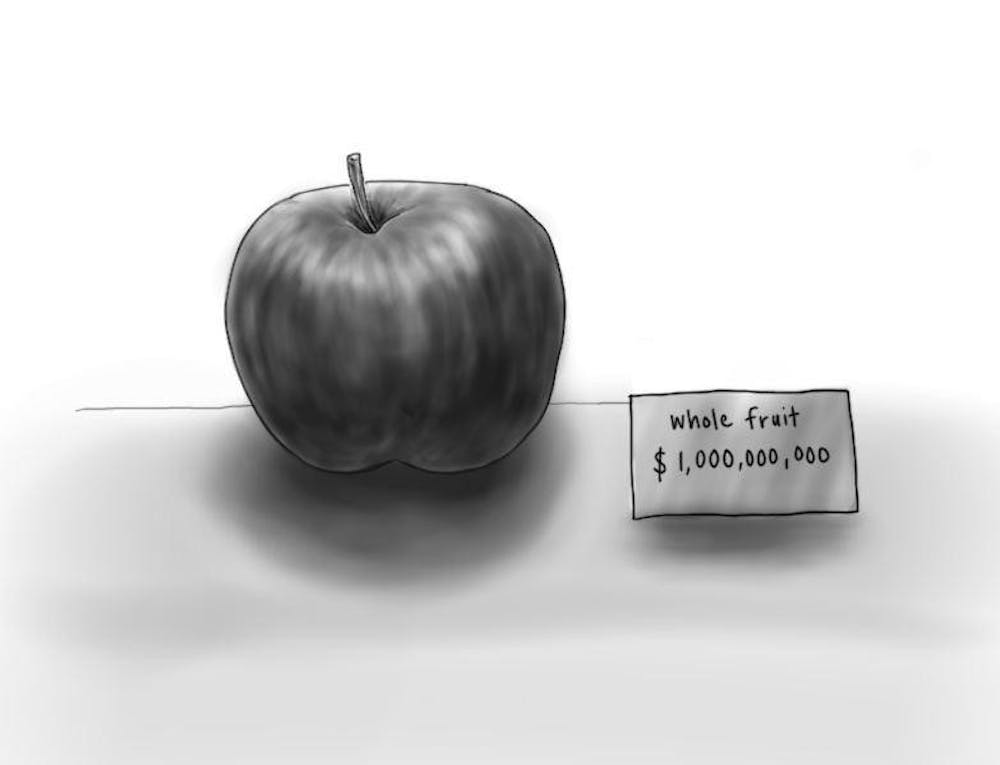(Ann Truong -- The Beacon)
By The Beacon's Editorial Board
Not only are many students drowning in debt from the rising cost of tuition, Bon Appétit is also sucking the money from our wallets with its exaggeratedly high prices of food on campus.
Bon Appétit needs to take another look at whom it is catering to: college students. It appears the managers of Bon Appétit have forgotten this.
Bon Appétit is known for its sustainability. The Beacon commends Bon Appétit for its good intentions, but it is costing students and their parents a fortune. Many students believe the high prices override any of the benefits, especially when off-campus alternatives offer organic food at a cost that won't break your wallet. For example, the Burgerville chain offers a selection of sustainable fast food, yet is able to keep its prices relatively low.
Bon Appétit also sells numerous high-end packaged foods, such as crackers and seaweed salad.
Most times, students prefer a $2 bag of chips rather than a $7 box of organic crackers. So, why is Bon Appétit trying to serve to a much more pretentious crowd? If students want to eat a nice meal, we are not going to eat it in The Commons.
According to Kirk Mustain, the general manager of Bon Appétit, the increase in prices were necessary in the current economy because the cost of labor, transportation and food prices rose in the last year for Bon Appétit. But, Bon Appétit prices have always been high.
Mustain also states that consumers have the power to dictate Bon Appétit's prices.
False.
If students stop buying more expensive options, Bon Appétit is likely to stop selling the option, not lower prices. Bon Appétit is a monopoly and has the power to do whatever it pleases. Over the summer, Bon Appétit increased the prices of 80 out of 590 items in The Commons, Cove and Anchor. The 80 items happened to be Bon Appétit's most popular options. Bon Appétit intentionally increased the prices of students' favorite food items – students are not going to be inclined to forego their favorite meals to make a consumer statement.
Bon Appétit does offer some low-cost options, if you want a less-healthy or less-filling meal.
Regarding potential "value options," half-portions are not the solution students are looking for: The problem is not the portion size, but the cost.
Bon Appétit needs to keep its consumer in mind. Students may not always want the organic option if it means we are going to be forking over more money. Therefore, Bon Appétit should look into selling less expensive items, even if it means they are not organic or local options. Or, Bon Appétit could look into buying its products from different vendors if the current vendors have increased prices too much.
Finally, Bon Appétit should ask students for our input on how to fix the problem or the food we would like to eat. After all, students are the consumers.
If Bon Appétit cannot offer student-affordable prices, perhaps the University should consider choosing a different catering company.








